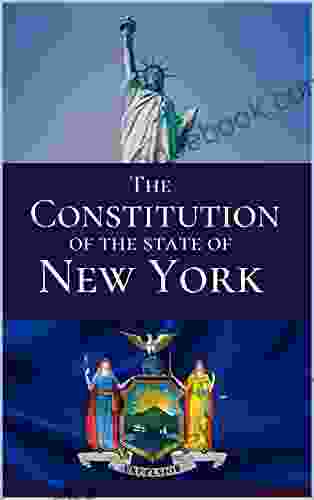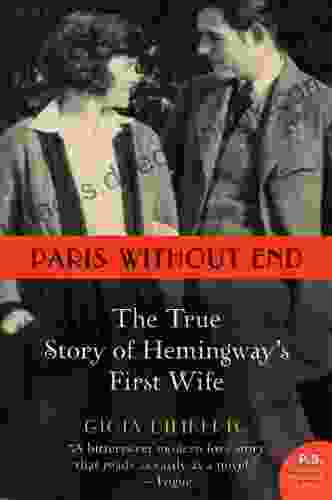Mahatma Gandhi and the Jewish National Home: A Journey of Support, Controversy, and Reflection

Mahatma Gandhi, the revered Indian independence leader, was a complex and multifaceted figure whose views on Jewish people and the Jewish National Home evolved over time. His early support for Zionism was tempered by his experiences in South Africa, where he witnessed firsthand the effects of racism and discrimination. Gandhi's later opposition to the partition of Palestine and the establishment of a Jewish state was influenced by his commitment to non-violence and his belief that all people, regardless of their religion or ethnicity, should live together in peace and harmony.
Gandhi's Early Support for Zionism
Gandhi's initial exposure to Zionism came early in his life while studying in England. He came across the writings of prominent Zionists like Theodor Herzl and Chaim Weizmann and was impressed by their arguments for a Jewish state. Gandhi believed that Jewish people had the right to self-determination and that the establishment of a Jewish National Home in Palestine was a just cause.
4 out of 5
| Language | : | English |
| File size | : | 2826 KB |
| Text-to-Speech | : | Enabled |
| Screen Reader | : | Supported |
| Enhanced typesetting | : | Enabled |
| Word Wise | : | Enabled |
| Print length | : | 246 pages |
In 1906, Gandhi wrote an article entitled "The Jewish Problem" in which he expressed his support for Zionism. He argued that the Jews were a "unique nation" with a "special claim" to Palestine. He also criticized the British for their anti-Jewish policies, such as the Balfour Declaration of 1917, which promised British support for the establishment of a Jewish National Home in Palestine.
Gandhi's Experiences in South Africa
Gandhi's experiences in South Africa, where he lived and worked for over two decades, had a profound impact on his views on race and discrimination. He witnessed firsthand the effects of apartheid, the system of racial segregation that was enforced by the South African government. Gandhi was appalled by the racism and discrimination that Jewish people faced in South Africa and he came to believe that Zionism was a valid response to the oppression that Jewish people faced.
In 1919, Gandhi wrote a series of articles in which he criticized the Balfour Declaration and called for a reconsideration of the idea of a Jewish National Home in Palestine. He argued that the Balfour Declaration was "wrong" and that it would lead to conflict between Jews and Arabs. He also expressed concern about the impact of Jewish immigration on the Arab population of Palestine.
Gandhi's Opposition to the Partition of Palestine
Gandhi's opposition to the partition of Palestine and the establishment of a Jewish state was based on his commitment to non-violence and his belief that all people, regardless of their religion or ethnicity, should live together in peace and harmony. He believed that the partition of Palestine would lead to violence and conflict between Jews and Arabs and that it would ultimately undermine the cause of peace in the region.
In 1947, Gandhi wrote a letter to the United Nations in which he urged the international community to reject the partition of Palestine. He argued that the partition plan would be "disastrous" and that it would "lead to bloodshed and misery." He also called for a "just and equitable" solution to the conflict between Jews and Arabs that would guarantee the rights of both peoples.
Gandhi's Legacy and the Israeli-Palestinian Conflict
Mahatma Gandhi's legacy continues to inspire people around the world, including those working for peace and reconciliation in the Israeli-Palestinian conflict. Gandhi's message of non-violence and his belief in the equality of all people offer a powerful antidote to the violence and hatred that has plagued the region for decades.
There are a number of organizations and initiatives that are working to promote Gandhi's legacy in the context of the Israeli-Palestinian conflict. For example, the Mahatma Gandhi Center for Nonviolent Change in Jerusalem is a non-profit organization that provides training and support to Palestinian and Israeli peace activists. The center's mission is to promote nonviolent resistance to occupation and to build a just and peaceful future for all Israelis and Palestinians.
Another organization, the Gandhi Peace Mission, is a global network of individuals and organizations that are working to promote Gandhi's message of non-violence and peace. The Gandhi Peace Mission has a presence in Israel and Palestine and it works to promote dialogue and understanding between Israelis and Palestinians.
The legacy of Mahatma Gandhi is a powerful reminder that violence is never the answer and that peace can only be achieved through dialogue, understanding, and reconciliation. Gandhi's message is particularly relevant to the Israeli-Palestinian conflict, which has been marked by violence and hatred for decades. Gandhi's teachings offer a way forward, a path to a just and peaceful future for all Israelis and Palestinians.
Mahatma Gandhi's views on Jewish people and the Jewish National Home evolved over time, but he always remained committed to the principles of non-violence and equality for all. Gandhi's early support for Zionism was tempered by his experiences in South Africa, where he witnessed firsthand the effects of racism and discrimination. Gandhi's later opposition to the partition of Palestine and the establishment of a Jewish state was influenced by his commitment to non-violence and his belief that all people, regardless of their religion or ethnicity, should live together in peace and harmony. Gandhi's legacy continues to inspire people around the world, including those working for peace and reconciliation in the Israeli-Palestinian conflict. Gandhi's message of non-violence and his belief in the equality of all people offer a powerful antidote to the violence and hatred that has plagued the region for decades.
4 out of 5
| Language | : | English |
| File size | : | 2826 KB |
| Text-to-Speech | : | Enabled |
| Screen Reader | : | Supported |
| Enhanced typesetting | : | Enabled |
| Word Wise | : | Enabled |
| Print length | : | 246 pages |
Do you want to contribute by writing guest posts on this blog?
Please contact us and send us a resume of previous articles that you have written.
 Page
Page Chapter
Chapter Genre
Genre Reader
Reader Library
Library Paperback
Paperback Sentence
Sentence Bibliography
Bibliography Foreword
Foreword Preface
Preface Footnote
Footnote Manuscript
Manuscript Codex
Codex Classics
Classics Biography
Biography Memoir
Memoir Reference
Reference Dictionary
Dictionary Thesaurus
Thesaurus Narrator
Narrator Resolution
Resolution Librarian
Librarian Catalog
Catalog Card Catalog
Card Catalog Stacks
Stacks Archives
Archives Periodicals
Periodicals Study
Study Lending
Lending Reserve
Reserve Academic
Academic Rare Books
Rare Books Special Collections
Special Collections Interlibrary
Interlibrary Literacy
Literacy Study Group
Study Group Thesis
Thesis Storytelling
Storytelling Awards
Awards Theory
Theory Brittni Vega
Brittni Vega Cory Bergeron
Cory Bergeron Gemma Malley
Gemma Malley Kersten Hamilton
Kersten Hamilton B L Barreras
B L Barreras S L Wallace
S L Wallace Richard Knott
Richard Knott Anwar Uddin
Anwar Uddin Alex Mathers
Alex Mathers Barbara O Connor
Barbara O Connor Emery Leeann
Emery Leeann Michael Tanner
Michael Tanner Gregory Fite
Gregory Fite Adrian Moore
Adrian Moore Jeff Gadsden
Jeff Gadsden Mitch Peeke
Mitch Peeke Robert Grant
Robert Grant Connie Kerbs
Connie Kerbs Paul Osborne
Paul Osborne Chris Townsend
Chris Townsend
Light bulbAdvertise smarter! Our strategic ad space ensures maximum exposure. Reserve your spot today!
 Marcus BellFollow ·16.6k
Marcus BellFollow ·16.6k Austin FordFollow ·10.5k
Austin FordFollow ·10.5k J.D. SalingerFollow ·13.4k
J.D. SalingerFollow ·13.4k Richard AdamsFollow ·10.3k
Richard AdamsFollow ·10.3k Ismael HayesFollow ·19.2k
Ismael HayesFollow ·19.2k Brayden ReedFollow ·14.5k
Brayden ReedFollow ·14.5k Ernest ClineFollow ·18.6k
Ernest ClineFollow ·18.6k Logan CoxFollow ·18.5k
Logan CoxFollow ·18.5k

 Amir Simmons
Amir SimmonsMore Zeal Than Discretion: A Closer Look at the Risks and...
Enthusiasm is often seen as a positive...

 Wayne Carter
Wayne CarterYear of the Dog: American Poets Continuum 178
Year of the Dog is a...

 David Foster Wallace
David Foster WallaceThe Constitution of the State of New York: A...
The Constitution of the...

 Harvey Bell
Harvey BellSmall Cetaceans of Japan: Exploitation and Biology
Small cetaceans, including...

 Blake Bell
Blake BellEffortless Elegance: A Comprehensive Guide to Captivating...
In the realm of crocheting,...
4 out of 5
| Language | : | English |
| File size | : | 2826 KB |
| Text-to-Speech | : | Enabled |
| Screen Reader | : | Supported |
| Enhanced typesetting | : | Enabled |
| Word Wise | : | Enabled |
| Print length | : | 246 pages |














